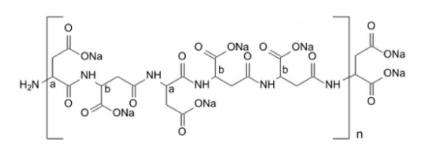
News
Јул . 30, 2024 00:11 Back to list
Exploring the Therapeutic Potential of Aluminum Chelation in Human Health and Disease Management
The Importance of Aluminum Chelation in Medical and Environmental Contexts
Aluminum is a prevalent metal that exists in various forms, and it has garnered a significant amount of attention due to its presence in everyday products as well as its implications for human health. The increasing evidence linking aluminum exposure to neurotoxicity and other health issues has underscored the necessity for effective methods to mitigate its effects. One such method is aluminum chelation, a process that involves the binding of aluminum ions by specific molecules known as chelators, facilitating their excretion from the body and thereby minimizing their harmful effects.
Chelation therapy has been widely studied in the context of heavy metal poisoning, and it has emerged as a potential therapeutic approach for conditions associated with aluminum exposure. The primary mechanism of chelation involves the formation of stable complexes between the metal ions and the chelators, preventing the metals from participating in detrimental biochemical reactions. This is particularly relevant in cases of neurodegenerative diseases, such as Alzheimer's disease, where aluminum accumulation has been implicated in disease progression. While the exact relationship between aluminum and Alzheimer's is still a topic of ongoing research, some studies have indicated that aluminum chelators may help reduce amyloid plaque formation and oxidative stress, potentially slowing the degeneration of neurons.
In clinical settings, several chelating agents, such as deferoxamine, EDTA (ethylenediaminetetraacetic acid), and DMSA (dimercaptosuccinic acid), have shown promise in managing aluminum toxicity. These agents work by binding to aluminum ions in the bloodstream and facilitating their elimination through the kidneys. Clinical trials have reported improvements in neurological function following chelation therapy in patients with elevated aluminum levels. However, the use of chelation therapy for aluminum is still a subject of debate, pointing to the need for further research to establish effective protocols and to understand its long-term implications fully.
aluminum chelation

Moreover, aluminum chelation has environmental implications as well. Aluminum is not only a concern for human health but also poses a risk to ecosystems, particularly aquatic environments where aluminum can leach into water bodies. In acidic conditions, where aluminum becomes more soluble, it can be toxic to fish and other aquatic organisms, affecting biodiversity and disrupting food chains. To combat aluminum contamination, chelation strategies could be employed in bioremediation efforts, utilizing synthetic or natural chelators to extract aluminum from polluted environments, thus restoring ecological balance.
The relevance of aluminum chelation extends beyond the realm of healthcare and environmental management; it can also contribute to innovations in various industries. In materials science, the development of aluminum chelators can inform the synthesis of new alloys or coatings that minimize aluminum leaching, enhancing product safety and sustainability.
In conclusion, aluminum chelation serves as a crucial tool in addressing the multifaceted challenges posed by aluminum exposure in both medical and environmental contexts. The promising results from ongoing research highlight the need for a deeper understanding of chelation mechanisms, optimal therapies, and innovative applications across various fields. As awareness of the risks associated with aluminum continues to grow, fostering development in chelation technology will be vital in safeguarding public health and promoting ecological integrity. The intersection of medicine, environmental science, and materials innovation presents a unique opportunity to harness the power of chelation to create a healthier and more sustainable future.
-
Polyaspartic Acid Salts in Agricultural Fertilizers: A Sustainable Solution
NewsJul.21,2025
-
OEM Chelating Agent Preservative Supplier & Manufacturer High-Quality Customized Solutions
NewsJul.08,2025
-
OEM Potassium Chelating Agent Manufacturer - Custom Potassium Oxalate & Citrate Solutions
NewsJul.08,2025
-
OEM Pentasodium DTPA Chelating Agent Supplier & Manufacturer High Purity & Cost-Effective Solutions
NewsJul.08,2025
-
High-Efficiency Chelated Trace Elements Fertilizer Bulk Supplier & Manufacturer Quotes
NewsJul.07,2025
-
High Quality K Formation for a Chelating Agent – Reliable Manufacturer & Supplier
NewsJul.07,2025
